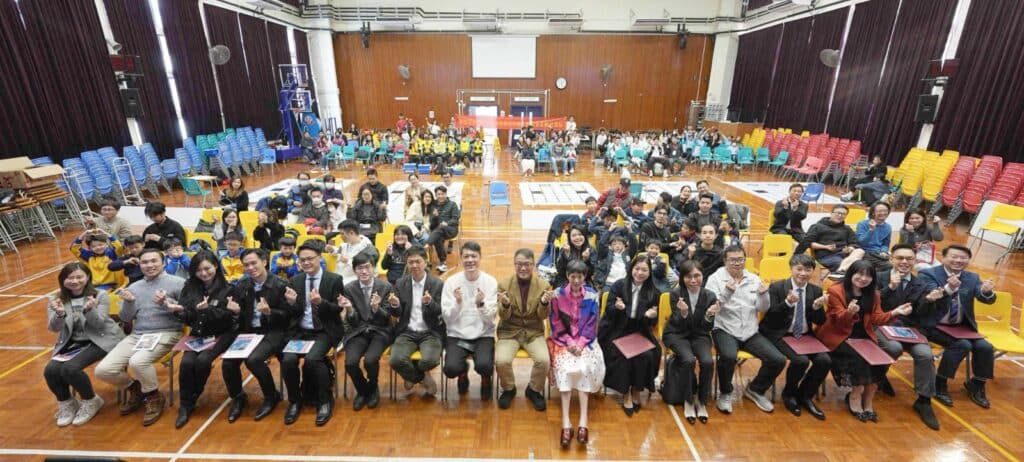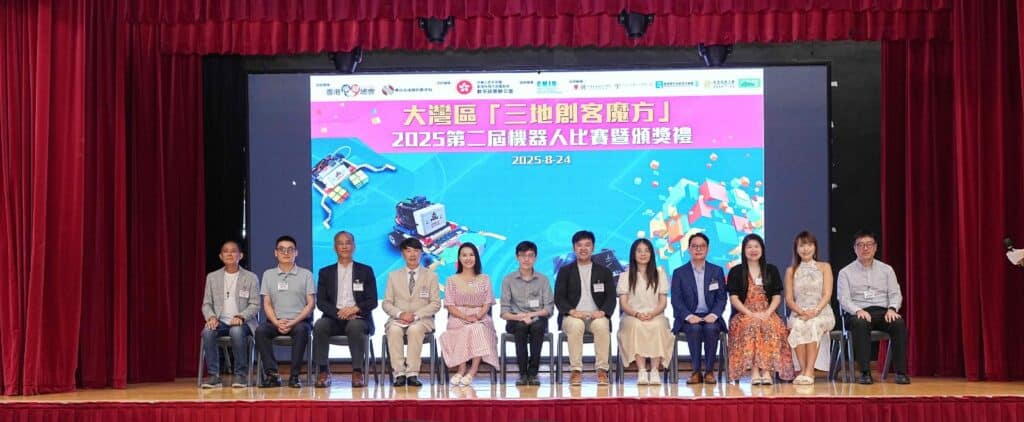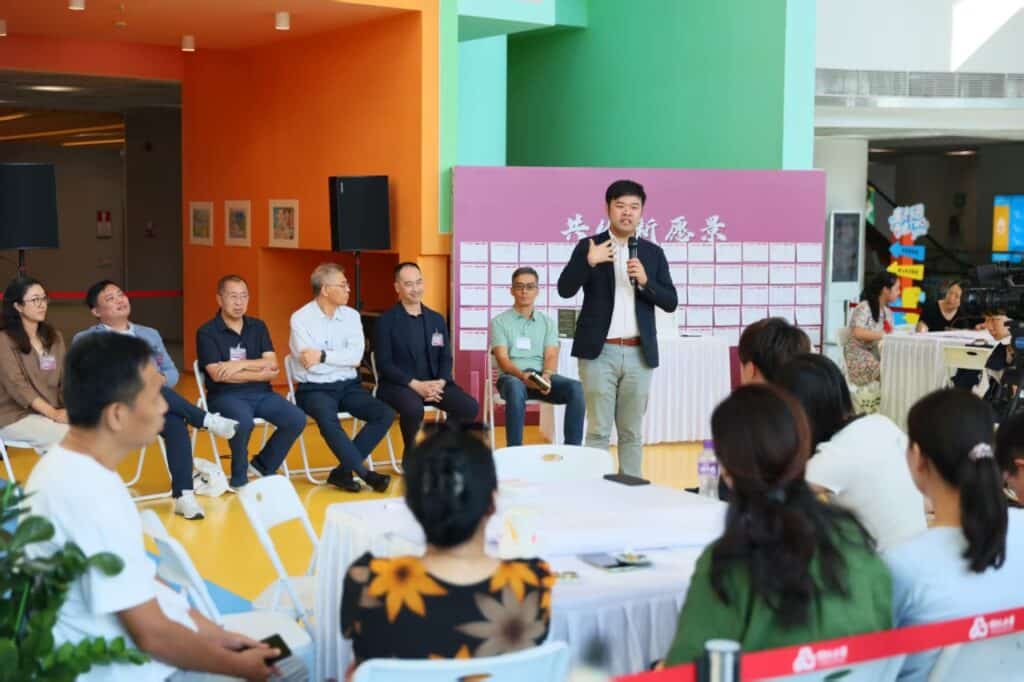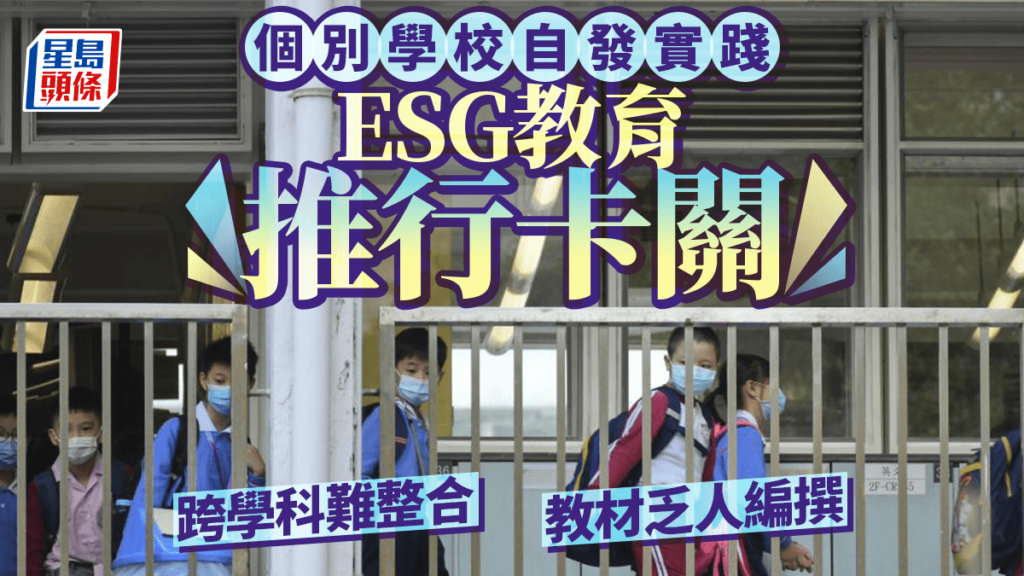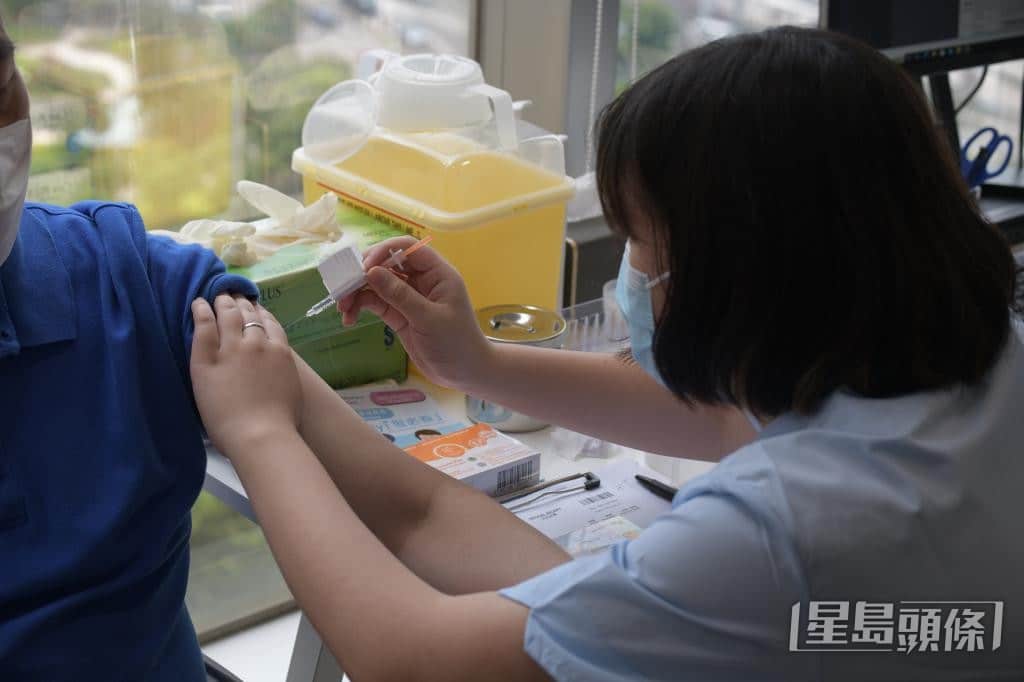The "Greater Bay Area Three-City Maker Cube 2025 and the Second Maker Cube Robot Competition Awards Ceremony," co-organized by the Hong Kong Speech and Debate Association and the Nanhai District Education Bureau of Foshan City, and co-organized by the Yulin Multi-Education Development Center, was held recently at Kau Yan College and YMCA College in Fanling. Officiating guests included Zhong Chi-hong, Secretary-General of the Hong Kong Speech and Debate Association; Huang Yingjun, member of the Wuhan Hong Kong District CPPCC; Li Jieming, Principal of Lize Middle School; Xue Changhua, Principal of the Rotary School of the Church of Christ in China; Pan Xuezhi, Assistant Director of the Shanghai-Hong Kong Development Joint Research Institute of Fudan University and the Chinese University of Hong Kong; and Guan Jianji, President of the Hong Kong and Macau Nanhai Youth Association.
This event is supported by the Digital Policy Office of the Government of the Hong Kong Special Administrative Region, the Shanghai-Hong Kong Joint Research Institute of Fudan University and the Chinese University of Hong Kong, the Yau Tsim Mong District Youth Development Association and other institutions. It brings together representatives from the education sector, CPPCC members and academic leaders in the Greater Bay Area to witness the outstanding performance of young people in the Bay Area in the field of scientific and technological innovation.
In his welcome speech, Li Jieming emphasized that the robotics competition is more than just a competition; it is a platform that integrates learning, practice, and collaboration. By programming, designing robots, and completing tasks, students can apply classroom knowledge to real-world situations. This not only strengthens students' logical thinking and problem-solving abilities, but also cultivates key skills in teamwork, communication, and project management. These abilities are the core qualities of innovative talent needed in future society and will further promote educational collaboration and talent cultivation in the Greater Bay Area.
Huang Yingjun expressed her delight at seeing students from Nanhai, Foshan, come to Hong Kong to participate in the Greater Bay Area Maker Cube 2025 and the Second Robotics Competition. This event not only provides a platform for competition but also offers a valuable opportunity to foster friendship and foster scientific and technological exchange between the two regions.
She noted that the competition specifically arranged for participating students to visit the Chinese University of Hong Kong and engage in in-depth exchanges with local students. Through collaborative learning and collaboration, students not only learned from each other in robotics technology but also sparked new insights into culture and philosophy. The competition challenged participants through coding, enhancing their practical skills and exploring cutting-edge STEM technologies. I congratulate all students for demonstrating their strengths in the competition, igniting their passion for science and technology, and for learning from their mistakes through repeated attempts.
Pan Xuezhi stated that programming and robotics competitions demonstrate creativity, a skill whose value far transcends the competition itself. In his policy research field, he often applies big data analysis, relying on this same logical thinking and passion for problem-solving to uncover key insights from complex data. Technology is reshaping healthcare, finance, education, and even urban governance, and students are the drivers of future change. Every innovation they demonstrate on the field today could become a key answer to solving real-world challenges tomorrow.
He Minfeng stated that the Maker Cube Robot Competition, jointly organized by Nanhai, Foshan, and Hong Kong, showcased the innovative vitality of education in the Greater Bay Area. He was deeply inspired by the students' brilliant performances, who seamlessly integrated the Maker Cube Robot with their creativity. This competition is not only a test of technical skills, but also a bridge for exchange and integration among young people from Guangdong, Hong Kong, and Macao. He expressed his hope for more scientific and educational exchanges and cooperation in the future, providing a broader platform for students from Guangdong and Hong Kong to pursue their dreams.
Guo Lingli stated that the 10-year plan outlined in the "Outline of the Plan for Building a Powerful Nation through Education (2024-2035)" covers key topics such as revitalizing the nation through science and education and cultivating scientific and technological talent. She noted that the second Maker Cube Robotics Competition, as a platform for education, science, and talent development, not only strengthened exchanges between young people in Hong Kong and Macao but also promoted mutual exchange and learning.
Guo Lingli emphasized that the future development of artificial intelligence will place great emphasis on logical thinking, and that debate is an effective training for this. She believes that the Rubik's Cube Robot Competition is a concrete manifestation of this logical thinking, allowing participants to unleash their creativity and problem-solving skills through practical operations. Such activities not only enhance students' scientific and technological literacy but also lay a solid foundation for their future careers in the field of innovation and technology.
